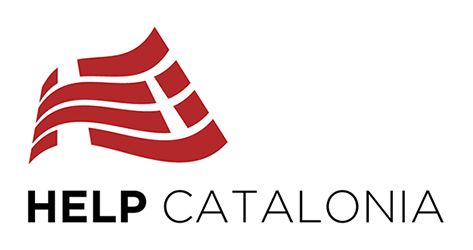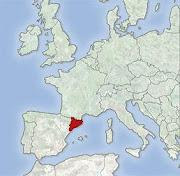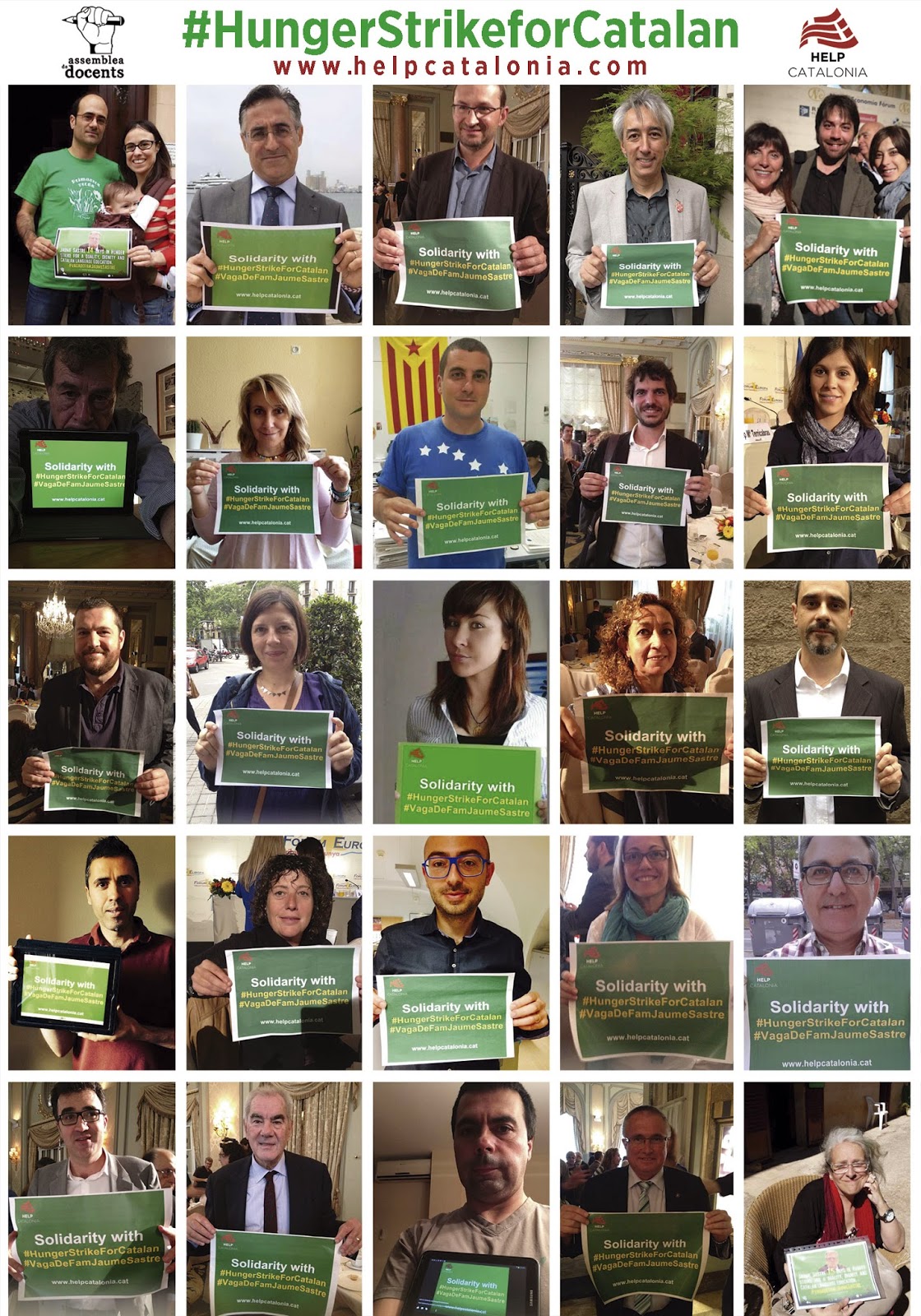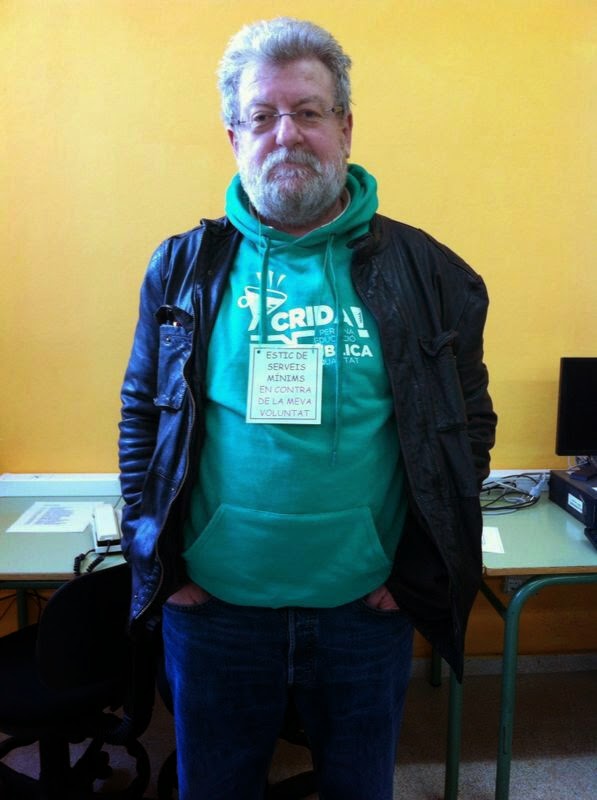Many people in Scotland (or Alba as we call it in my language) are fascinated by the vigour of the independence movement in Catalunya and, if we were called upon to lay a bet on which country might achieve independence first, we would be hard-put to know where to place our money. Putting a million people on the streets of Barcelona last year was a phenomenal achievement, and certainly not one that could be copied (even at a smaller scale) in Scotland. If our country’s drive to independence seems to be lukewarm currently, there is more than just economic uncertainty to blame. Indeed, a lot of the political lethargy (with eighteen months to go until the referendum) can probably be linked to the fact that the United Kingdom authorities have actually been rather gentle with, and largely respectful to, the ‘errant’ Scots – so far, at least. Those who wish for independence would probably welcome a Madrid-style interference with our governmental priorities in order to raise the political temperature!
Scotland has been part of Great Britain since 1707, and part of the United Kingdom since 1801. It was in theory an equal partner with England (including Wales) in the 1707 union, but in practice there never was, and never would be, equality between the two countries. England had four times the population of Scotland in 1707; it now has ten times Scotland’s population. The only way that equality might have been achieved would have been for Scottish and English identity to disappear, and for everybody to view themselves as British, and only British. That has never happened. Scottish identity is undeniably stronger today than it was in my childhood, and it now has expression through the devolved parliament and government in Edinburgh. If only our football team were better…!
While it might be tempting to some to compare the roles of Francisco Franco and Margaret Thatcher in boosting the desire of Catalans and Scots to achieve independence, the comparison would be unfair. Thatcher was a democrat, and didn’t try to squash Scottish identity through banning the country’s minority languages. But there is little doubt that the Iron Lady’s policies, and her premiership, fuelled a sense that Scotland was being misgoverned. The English elected her, the Scots suffered her – or so the orthodoxy goes. The end result of that process of disengagement was the setting up of the Scottish Parliament in 1999. Since that time, there has been a new political dynamic in Scotland, and the Scottish National Party, which seeks independence, is now a majority government in a parliament whose electoral system was established with the aim of preventing such a scenario.
But many Catalans would be surprised to hear that language plays an insignificant role in the Scottish independence debate. ‘We want to govern ourselves; we want to have the economic levers to create a more prosperous society; we want to build a fairer society with less of a gap between rich and poor; we want our country to pledge itself to peaceful co-existence with its
neighbours and to reject militaristic adventurism’. You will hear all of these comments from advocates of Scottish independence. What you won’t hear is ‘we want to speak and use our language without interference from the authorities in London’. London doesn’t interfere in that way any more. It doesn’t need to – our languages are so weak that they provide no challenge to the hegemony of the English tongue. The contrast with the vigour of Catalan in Catalunya is stark.
There are two major indigenous languages in Scotland. One is Scots, a close relative of English, which grew out of the Anglian speech common to northern England and southern Scotland. It is traditionally associated with the eastern and southern parts of the country, although dialects are also spoken in the once-Norse island groups of Shetland and Orkney in the far north.
My own tongue, Gaelic, a sister language to Irish, is the only founding language of the kingdom of Alba still spoken today. It grew to be the majority language of Scotland between the eleventh and fifteenth centuries, reaching most corners of the country and establishing a Scottish identity that prevented the country being absorbed into an aggressive and expansive England, but it was gradually pushed into its later stronghold of the mountainous Highlands.
It is now only spoken by a little over one percent of the population, having been in retreat for a long time, although there are hopes for its regeneration, particularly through Gaelic Medium education which, like the Catalan system, produces fluently bilingual children with an above-average command of the national majority language (English in our case, Spanish in the Catalan situation). However, in contrast to the vast numbers in Catalunya, only some 3,500 children currently gain the benefit of a Gaelic Medium education.
Whether Gaelic would benefit from independence is not clear. It has certainly benefited from devolution, however. The Scottish Parliament passed the Gaelic Language Act in 2005 with all-party support, and the language’s new confidence and dynamic saw the creation of a (part-time) Gaelic TV channel, BBC ALBA, in 2008. On a small budget, it provides an excellent service.
I was in Catalunya some years ago and met some language activists in Girona. They were unhappy at what they saw as the oppressed state of their language and were convinced that only political independence from Spain would ensure its future. The continued suppression of the language in the Valencia community and other parts of Els Països Catalans, plus the current attempt by Madrid to demote the place of the Catalan language in education in Catalunya itself would certainly seem to support their contention.
But I also experienced a language spoken by many millions (not tens of thousands like my own), with a vigour that most lesser-used or minority languages around Europe can only dream about. Ironically, it is the success of Catalan that marks it as a powerful political symbol, both for its supporters and opponents. The Gaelic language can be largely ignored by the central powers, but
Catalan cannot. An act of suppression can be read, if one is a lateral thinker, as a compliment!
If Catalans are a little disappointed at the apparent lack of interest among Scottish politicians in the struggle for Catalunya’s independence, they can rest assured that there is a lot of interest both in political circles and within the general population. However, Madrid’s tentacles have clearly stretched as far as Edinburgh, stilling Scottish politicians’ tongues when it comes to voicing support for the Catalan cause. In the event of a ‘Yes’ vote for independence in September next year, an independent Scottish government would have to take part in negotiations over the country’s future in the European Union, NATO and other international organizations. The opportunity for Spain to play mischief-maker and block Scotland’s route into those organizations is clear.
However, the attempt by the Spanish authorites to fundamentally alter Catalunya’s education system would be impossible in Scotland. We are entirely autonomous when it comes to education and we have our own legal system, separate from that in England. Decisions to expand or restrict Gaelic Medium education are made in Scotland. Decisions to support the language in other ways are made in Scotland. The role of the UK in such matters is mainly as a signatory to pertinent international treaties such as the European Charter for Regional or Minority Languages.
In that respect we already have a lot of freedom and, even if the majority reject independence in next year’s plebiscite, it is likely that Scots will demand, and most likely receive, further powers from London, particularly concerning economic governance. And Scotland has a couple of big bargaining chips – its substantial subsea oil deposits and its hosting of the UK’s nuclear-armed submarine fleet. On the other hand, the Scottish government’s desire for an independent Scotland to be part of a Sterling currency zone, rather than joining the Euro, is seen by London as boosting their own bargaining position.
What neither Catalunya nor Scotland yet knows is how the independence movement and campaign in each of our countries will affect the argument in the other. We should speak to each other more. What each learns from the other can help to inform our political outlook and ambitions, and our understanding of the universal desire of humans, whatever our languages, to build prosperous, happy and peaceful societies.
by Ruairidh MacIlleathain
Scottish journalist Ruairidh MacIlleathain works primarily in the Gaelic language.









































